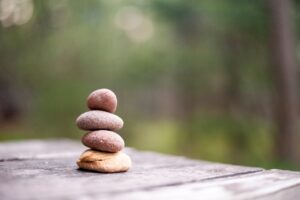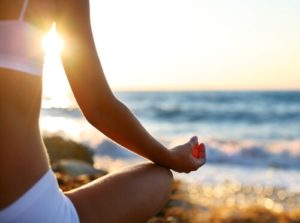Anxiety is something many of us experience, whether it’s mild worry or overwhelming stress. Thankfully, there are several natural ways to calm anxiety that can be simple, effective, and accessible to most people. Let’s explore some of these techniques, including one that might surprise you—acupuncture.
1. Deep Breathing
One of the quickest ways to calm your body and mind is through deep breathing. When you’re anxious, your breathing tends to be shallow and fast. Taking slow, deep breaths helps activate the body’s natural relaxation response to take us out of “fight-or-flight” mode. Try this simple technique:
- Breathe in deeply through your nose for 4 counts.
- Hold the breath for 4 counts.
- Exhale slowly through your mouth for 6 counts. Repeat this for a few minutes, and you’ll likely notice a decrease in your anxiety levels.
2. Exercise
Exercise is a fantastic way to release built-up tension and anxiety. Physical activity boosts endorphins, the body’s natural mood lifters, and helps distract the mind from worries. It doesn’t have to be intense—walking, yoga, or even stretching can help reduce anxiety. Aim for at least 30 minutes of movement each day.
3. Mindfulness Meditation
Mindfulness meditation involves focusing on the present moment and accepting it without judgment. By being aware of your thoughts and feelings without getting overwhelmed, you can reduce anxiety. Start by sitting quietly for a few minutes, paying attention to your breath, and gently bringing your focus back whenever your mind wanders. If you need a bit more guided help, you can find meditations readily available online- even free ones on YouTube.
4. Herbal Remedies
Certain herbs have been used for centuries to reduce anxiety and promote relaxation. Some common ones include:
- Chamomile: Often consumed as a tea, chamomile has mild sedative properties.
- Lavender: The scent of lavender oil can promote relaxation and reduce stress.
- Ashwagandha: This adaptogenic herb helps the body manage stress and anxiety.
More complex herbal formulas can also help treat anxiety in a personalized way. We provide herbal formula support at Healing Lotus Acupuncture and would be happy to help find the right formula for you. Always consult a healthcare professional before trying any new herbal remedy, especially if you’re on medication.
5. Acupuncture
Studies have shown that acupuncture can help reduce anxiety by stimulating the body’s natural neurotransmitters and regulating stress hormones. The idea behind acupuncture for anxiety is that it restores balance in the body and mind, promoting relaxation and reducing the physical symptoms of anxiety like increased heartrate, overwhelm, worry, and insomnia. Many people who try acupuncture report feeling calmer after sessions, and some find it especially helpful for chronic anxiety. It’s non-invasive and can be a great complement to other anxiety-relief methods like those mentioned here.
6. Journaling
Sometimes, getting your thoughts out of your head and onto paper can help you see things more clearly and reduce anxiety. Journaling allows you to express your feelings, track patterns, and identify triggers. Try writing down what’s bothering you, then write about possible solutions or positive outcomes.
7. Spending Time in Nature
Nature has a calming effect on the mind. Whether it’s a walk in the park, sitting by a river, or spending time in your garden, being outside can help ground you and ease anxious thoughts. Try walking barefoot in the grass or along a beach for extra grounding with the earth. Nature sounds like birds chirping or water flowing also have a relaxing effect.
Conclusion
Managing anxiety naturally can involve a combination of practices like deep breathing, mindfulness, and exercise, as well as remedies like herbal treatments and acupuncture. While these methods can be highly effective, it’s important to remember that everyone is different. What works for one person may not work for another. If your anxiety is severe, don’t hesitate to reach out to a healthcare professional for support. At Healing Lotus Acupuncture, we regularly treat anxiety with great success. By incorporating these calming practices into your daily life, you can better manage anxiety and find more peace and balance.

References:

